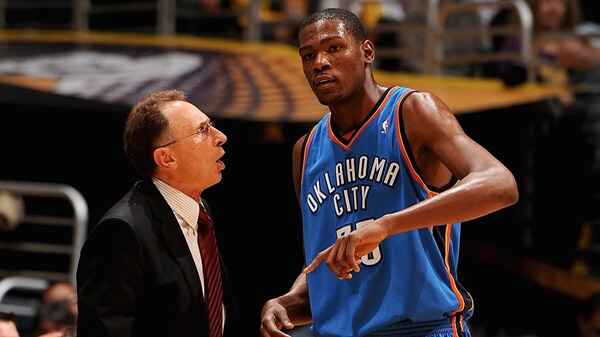Behind every legendary athlete is a coach whose vision, strategy, and mentorship have played a pivotal role in their success. Coaches are more than just instructors; they are motivators, strategists, and role models who guide athletes to achieve greatness. Whether it’s fostering raw talent, instilling discipline, or navigating the mental challenges of competition, the influence of a great coach can be transformative.
Join banger casino BD and let’s explore the critical role coaches play in shaping legendary athletes, examining their methods, relationships, and lasting impact on the world of sports.

1. The Multifaceted Role of a Coach: Coaches Should Create a Positive Impact
1.1 Developing Talent
Coaches identify and nurture potential, turning raw talent into polished excellence.
- Technical Mastery:
Coaches refine athletes’ skills, ensuring they excel in their discipline. - Strategic Guidance:
They develop game plans and techniques that leverage the athlete’s strengths while minimizing weaknesses.
Example:
Phil Jackson, known as the “Zen Master,” used his deep understanding of basketball to guide players like Michael Jordan and Kobe Bryant to legendary status.
1.2 Instilling Discipline and Work Ethic
Discipline is the foundation of success, and coaches play a key role in instilling this quality.
- Routine and Structure:
Coaches design training programs that build consistency and resilience. - Pushing Limits:
Great coaches challenge athletes to go beyond their comfort zones, fostering growth.
Example:
Vince Lombardi’s famous mantra, “Winning isn’t everything; it’s the only thing,” motivated generations of football players to adopt an unwavering commitment to excellence.
1.3 Emotional and Mental Support
Athletes often face intense pressure, and coaches provide crucial psychological support.
- Building Confidence:
Coaches help athletes overcome self-doubt and build belief in their abilities. - Handling Setbacks:
They guide athletes through injuries, losses, and other challenges, ensuring they stay motivated.
Example:
Toni Nadal, uncle and coach to Rafael Nadal, focused on mental toughness, helping Rafa become one of tennis’s most resilient competitors.
2. Famous Coach-Athlete Partnerships
2.1 Phil Jackson and Michael Jordan/Kobe Bryant
Phil Jackson’s triangle offense and psychological insights transformed both Jordan and Bryant into unstoppable forces, leading to multiple NBA championships.
2.2 Sir Alex Ferguson and Cristiano Ronaldo
Under Ferguson’s mentorship, Ronaldo honed his skills, discipline, and tactical understanding, evolving into one of football’s greatest players.
2.3 Bob Bowman and Michael Phelps
Bowman’s meticulous training plans and mental strategies helped Phelps win a record 23 Olympic gold medals, cementing his legacy as the greatest swimmer of all time.
2.4 Bela Karolyi and Nadia Comaneci
Karolyi’s rigorous coaching led Nadia Comaneci to become the first gymnast to score a perfect 10 at the Olympics, redefining gymnastics excellence.
3. The Psychology of Coaching
3.1 Building Trust and Rapport
A strong coach-athlete relationship is built on trust, mutual respect, and open communication.
- Tailored Approach:
Coaches adapt their methods to suit the athlete’s personality and needs. - Empathy:
Understanding an athlete’s struggles fosters a supportive environment.
Example:
Pat Summitt, legendary basketball coach, was known for her deep personal connections with her players, inspiring loyalty and dedication.
3.2 Motivating Through Challenges
Coaches use a combination of tough love and encouragement to push athletes to their limits.
- Positive Reinforcement:
Celebrating small victories keeps athletes motivated. - Constructive Criticism:
Identifying areas for improvement ensures continued growth.
Example:
Pep Guardiola’s attention to detail and motivational skills have made him one of the most successful football managers, inspiring teams like Barcelona and Manchester City.
4. The Legacy of Great Coaches
4.1 Creating Dynasties
Legendary coaches often leave behind dynasties, transforming teams and programs into perennial champions.
Example:
John Wooden, the “Wizard of Westwood,” led UCLA to 10 NCAA basketball championships, establishing a legacy of excellence.
4.2 Shaping Future Generations
Great coaches not only influence their athletes but also inspire future coaches and leaders.
Example:
Bill Belichick’s coaching tree in the NFL includes numerous successful coaches who carry forward his strategic approach to the game.
5. Challenges Coaches Face
5.1 Balancing Personalities and Egos
Managing elite athletes often involves navigating strong personalities and egos.
- Conflict Resolution:
Coaches must mediate disputes while maintaining team cohesion. - Setting Boundaries:
Establishing clear roles and expectations ensures mutual respect.
5.2 Adapting to Change
As sports evolve, coaches must stay updated on new techniques, technologies, and strategies.
- Embracing Analytics:
Data-driven decision-making is increasingly shaping modern coaching. - Cultural Sensitivity:
Coaching international athletes requires understanding diverse backgrounds and values.
6. Modern Coaching Trends
6.1 Integration of Technology
Coaches now use tools like performance analytics, wearable devices, and video analysis to fine-tune strategies.
Example:
Tony Dungy, a pioneer in data-driven football coaching, leveraged analytics to lead the Indianapolis Colts to a Super Bowl victory.
6.2 Focus on Mental Health
Modern coaches prioritize mental health, recognizing its importance in achieving peak performance.
- Mindfulness Training:
Techniques like meditation and visualization are becoming integral to athlete preparation. - Mental Health Resources:
Coaches work with psychologists to support athletes holistically.
7. The Enduring Impact of Coaches
Great coaches shape more than just athletes—they influence lives.
- Beyond Sports:
Many athletes credit their coaches for life lessons that extend beyond the playing field, including resilience, teamwork, and leadership. - Cultural Impact:
Coaches often become symbols of inspiration, embodying the spirit of their sport.
Conclusion: Different Coaching Styles to Help Athletes
The influence of a great coach extends far beyond the technical aspects of a sport. By guiding athletes through challenges, fostering discipline, and nurturing talent, coaches play a pivotal role in shaping not only careers but also character.
Behind every great athlete is a coach who believed in their potential and pushed them to achieve the extraordinary.